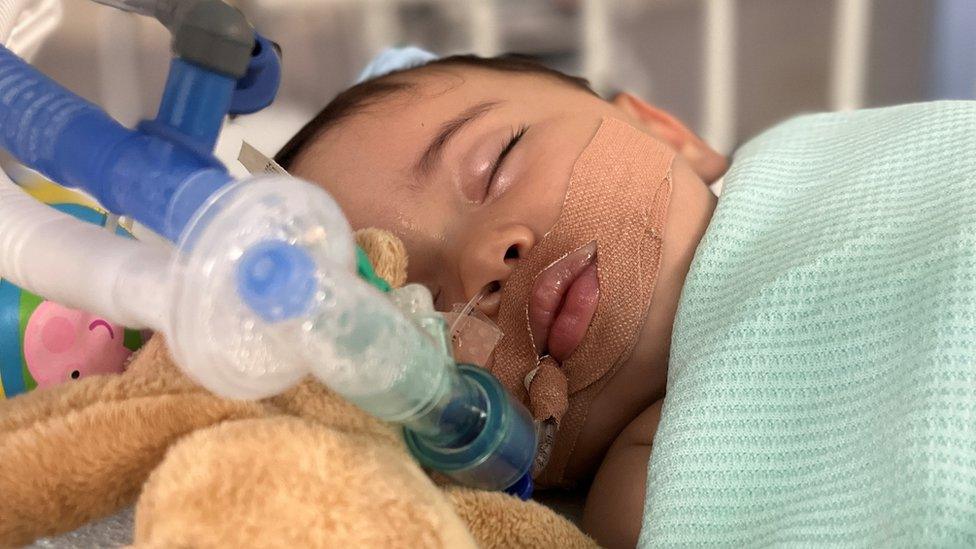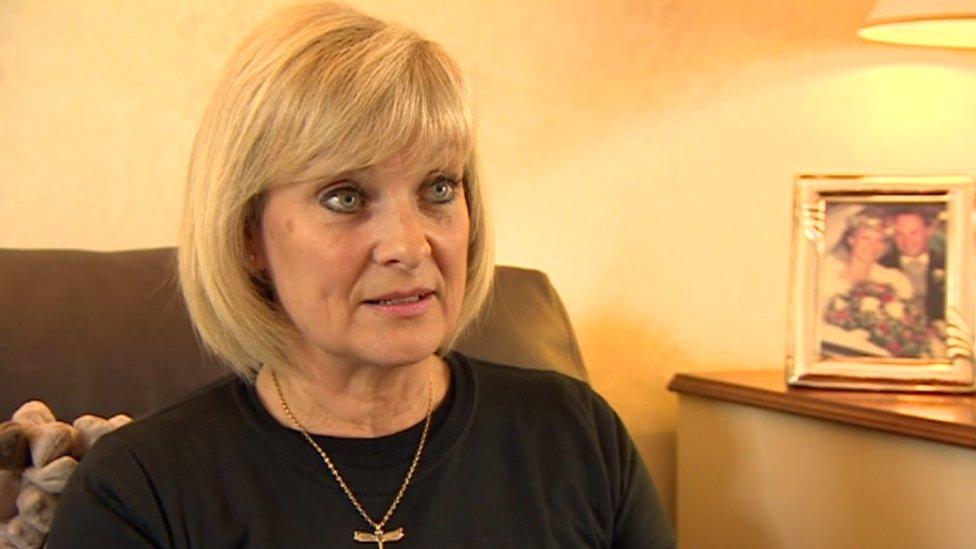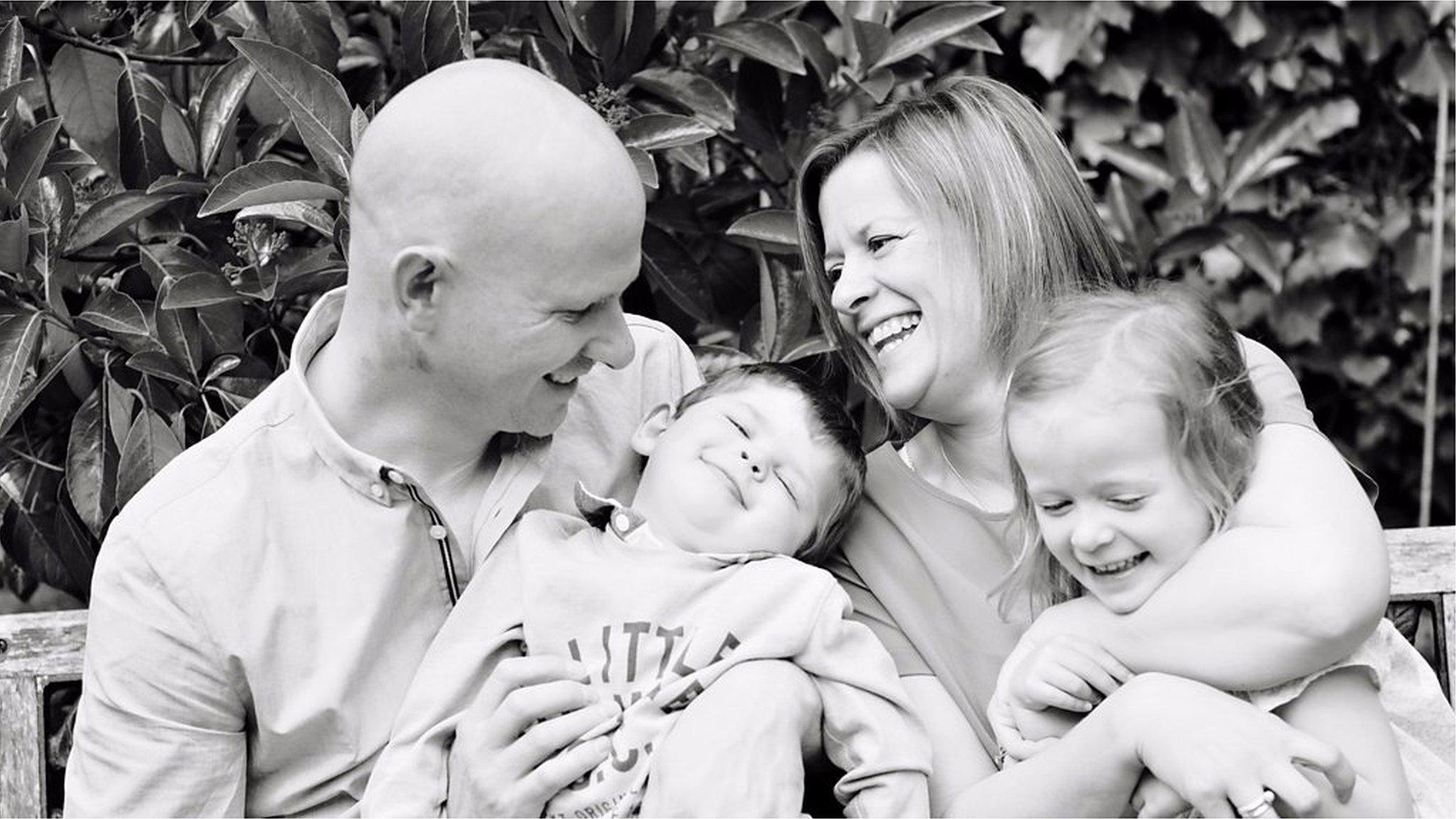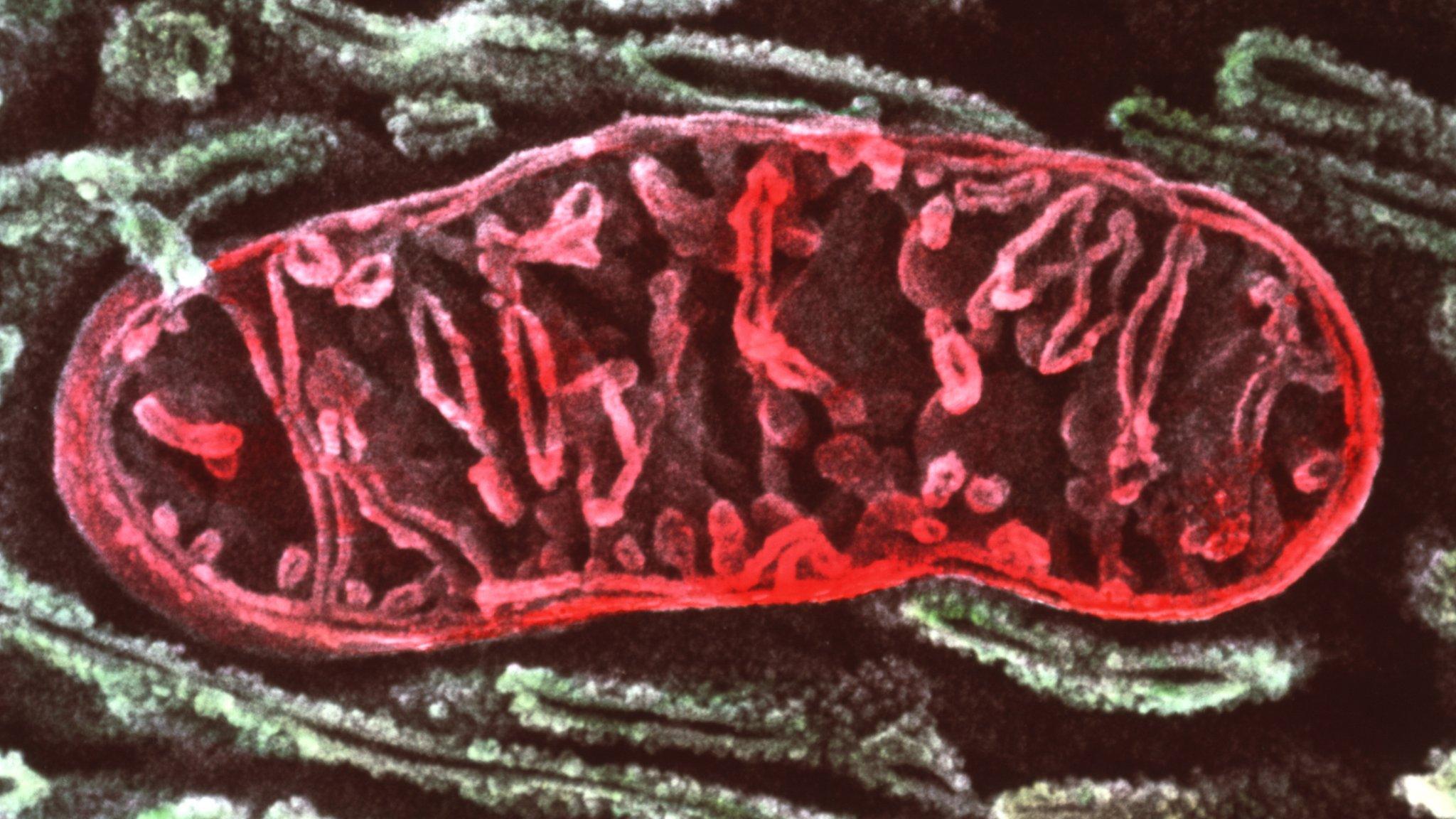Mitochondrial disease: Thousands raised for baby with genetic illness
- Published

Milanna had her first seizure while waiting for antibiotics at the Queen's Medical Centre
Nearly £20,000 has been raised for a family in Nottingham after their nine-month-old daughter was found to have a life-limiting genetic condition.
Milanna was diagnosed with mitochondrial disease a few weeks after she started having seizures.
Reanna and Malaky were told their daughter would lose her sight, hearing and eventually her organs would fail.
They plan to use the money to meet with experts in the US in the hope they can give her the best quality of life.
Reanna was originally told her daughter had an ear infection when she took her to the doctors with a temperature on 7 January.
While waiting to collect antibiotics at Queen's Medical Centre, in Nottingham, Milanna had a seizure in her pram.
Reanna said: "She had a starry bib on and I thought she was just looking at the stars.
"I said 'Milanna' and she wouldn't look at me."
Reanna stopped a passing nurse and explained her daughter was unresponsive.
"The nurse just whipped her out the pram and said 'she's having a seizure'.
"They put us in a side room and loads of people came rushing," she said.
Reanna said the seizure lasted for about two hours and 40 minutes.

Last week it was confirmed Milanna had mitochondrial disease
Milanna spent the next few weeks in intensive care, having seizures every two hours.
She was eventually diagnosed with epilepsy and given medication but doctors said the frequency of the seizures was unusual.
They suggested Reanna and Malaky had a blood test to see if their daughter could have a genetic condition.
Last week, it was confirmed Milanna has mitochondrial disease.

What is mitochondrial disease?
It is a term used for conditions caused by faulty mitochondria.
Mitochondria are responsible for energy production that allows cells to work properly.
The disease can affect different parts of the body, particularly those that require a lot of energy like the brain, heart and liver.
It is genetic, caused by mutations of DNA.
There is no cure but many of the problems associated with it can be treated.
Source: Muscular Dystrophy UK

Reanna said Milanna had already started to deteriorate.
"My daughter, prior to these seizures, was crawling, she was sitting on her own, she could eat finger food - she can't do any of that any more," she said.
The family was told by doctors that Milanna could live for a few weeks, months or maybe a few years.
"As a parent it is your worst nightmare. She's our first and we tried so long for a baby.
"It just feels like we're in a dream at the minute and we're just waiting to wake up," said Reanna.

Reanna said Milanna had already started to deteriorate
Reanna said the condition was rare in the UK and there was not much information available.
The family plan to travel to the US to meet with experts and potentially request a drug that could help make the time Milanna has left more enjoyable.
"There is a drug over there that they give to patients to energise all their muscles and hopefully prolong their life," Reanna said.
The drug is available in the UK but Reanna said her daughter would not be eligible for it until she had become much more poorly.
She said the money raised by donations would be "extremely helpful" with their plans to make the most of Milanna's short life.

Follow BBC East Midlands on Facebook, external, on Twitter, external, or on Instagram, external. Send your story ideas to eastmidsnews@bbc.co.uk, external.
Related topics
- Published25 March 2019

- Published30 December 2017

- Published16 July 2015
